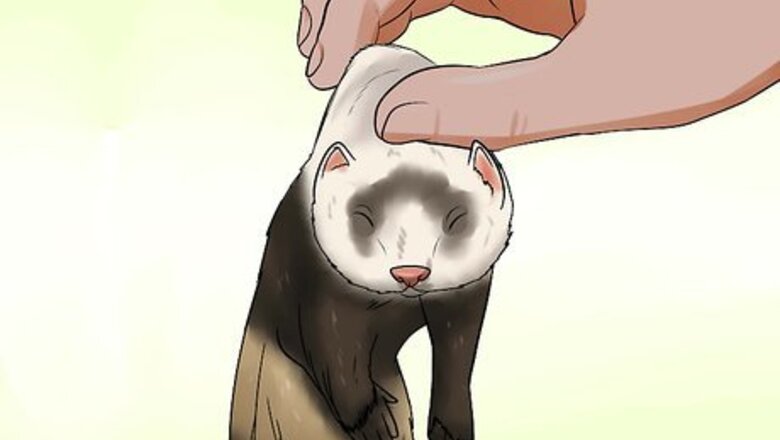
views
Disciplining your Ferret
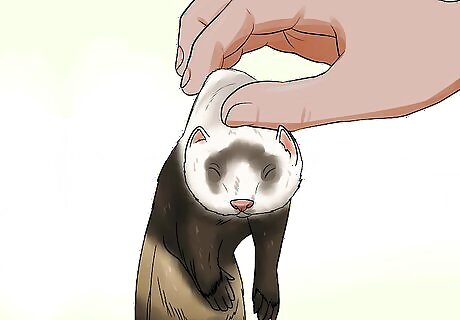
Scruff your ferret. Scruffing is one of the most popular ways to stop your ferret from biting. Grab your ferret by the loose skin on the back of the neck, and lift it to your eye level. Close the mouth with your index finger and thumb. Look at the ferret and say, "No!" in a loud and firm voice. Your ferret will probably struggle and try to move around. Don't be alarmed. You are not hurting the ferret.
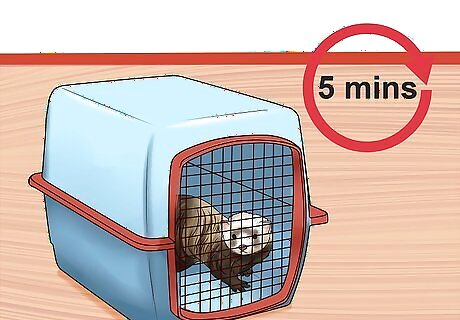
Put the ferret in time out. If scruffing does not work, put your ferret in time out. Put the ferret in a travel carrier or cage for 5 minutes or less. This method works best for baby ferrets (i.e. kits) because they are very playful and do not like being alone. Time out will help your ferret associate biting with something bad. Your ferret may go to sleep if you leave it in the cage for too long during time out. Your ferret needs to associate the cage with punishment, not with nap time.
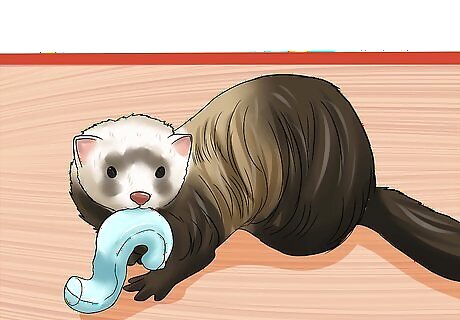
Distract your ferret. Kits often get overly excited when they play and will begin to bite. If your ferret bites you during playtime, give the ferret a toy to bite instead. This teaches your ferret that it is acceptable to bite a toy but not to bite people. There is no need to make a big deal about biting using this method.

Avoid training mistakes. You should never hurt your ferret as part of the training process. Do not flick their nose, throw them, or hit them. Never scream or yell at them either. You do not want your ferret to be afraid of you. Your ferret may actually bite you more if it is afraid of you. Think of your ferret as a child that you love but are trying to discipline. You want to be seen as a loving, caring authority figure.

Use Bitter Apple spray. Ferrets hate the taste of Bitter Apple and Bitter Lime and Fooey. You can buy any of these at your local pet store or online. Spray a small amount on your hands, toes, ankles, and anywhere else your ferret likes to bite. This will help the ferret associate biting with a nasty taste. Never directly spray your ferret. You can also put some of the spray on a Q-tip and put it in the ferret's mouth when it starts to bite. Bitter Apple also comes in a paste. This is helpful if your ferret likes to bite cords or their cage bars. Apply the paste to the item to deter the ferret from biting.
Identifying the Reason for Biting
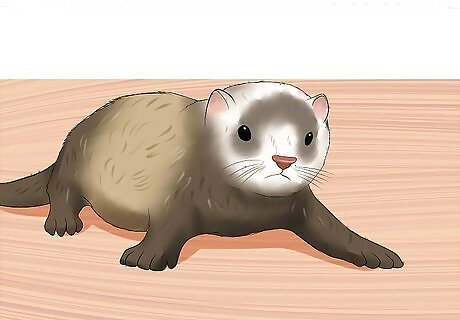
Treat kits differently than adults. Kits bite because they do not know any better, but are easier to train than adult ferrets. If you are consistent, you can train a kit to stop biting in a few weeks. Kits usually bite for attention, to play, or to be put down. To break the kit from biting to be put down: Hold the ferret so it is unable to bite you. Keep holding it even if it squirms. Put the kit down once it stops squirming. Praise the kit and tell it how good it has been.
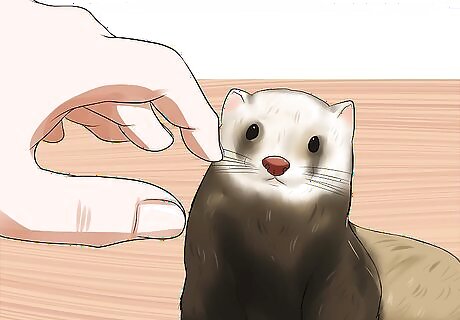
Build trust with adult ferrets. Adult ferrets bite because they were not trained properly when they were younger and/or they have problems trusting humans. They will need direct skin to fur contact when you handle them. It will take a few months to train them to stop biting, but you need to be consistent, firm, and gentle with them. Adult ferrets bite much harder than kits, but still try to provide as much skin to fur contact as possible. Adult ferrets may be suspicious and nervous when being handled.
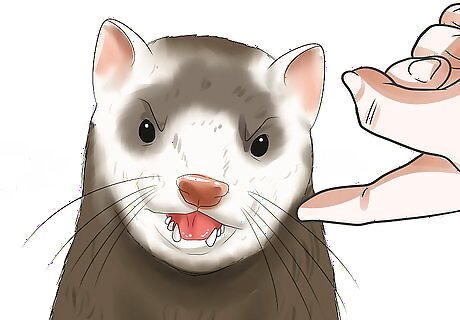
Deal with a fear biter. If a ferret was handled roughly as a kit or lacks confidence, it may be a fear biter. Punishing a fear biter may actually reinforce the idea that they should be afraid of people. You should be more gentle with a ferret that bites out of fear. Acclimate the ferret to being touched by you before you pick it up on a regular basis. Feed your ferret out of your hands and reward calm behavior. Once your ferret is used to eating out of your hands, you can start picking the ferret up. Keep your training sessions short at first. Progressively lengthen the time of your sessions as the ferret becomes more comfortable with you.
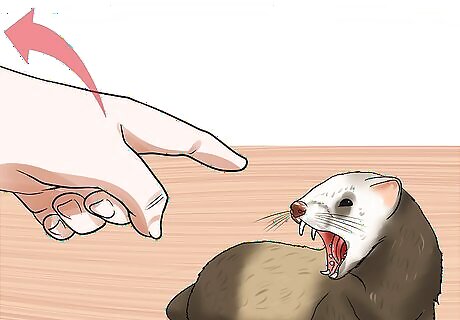
Stop a play biter. Some ferrets bite to let you know that they want to play. If your ferret does this, remove your hand and walk away from the ferret. Your ferret may chase you after you walk away because it wants to play. By ignoring the ferret, you are teaching it that biting is not an appropriate way to initiate playtime. Reward calm behavior with treats and kind words. If the ferret begins to bite during play, stop playing.
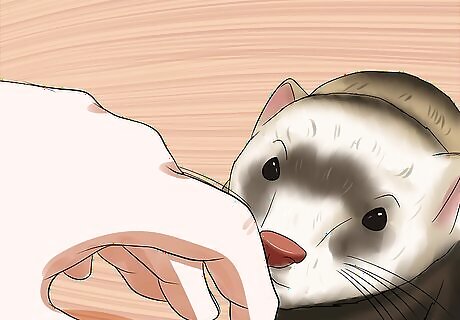
Pick up on communication signals. Some ferrets bite as a way to communicate with you. By the time the ferret is biting, you may have missed other signals. Nuzzling or coming to you and waiting are signs that your ferret wants your attention. Notice if your ferret does these things, and then respond to your ferret immediately. If you wait too long to respond, your ferret learns that biting is the quickest way to get your attention. If your ferret bites to get your attention, ignore the ferret. If your ferret bites you when it is ready to put it down, hold the ferret for a few seconds longer before you put it down. Putting down the ferret right after it bites you will reinforce the behavior. Some ferrets do not like being held for long periods of time, pay attention to how your ferret responds.



















Comments
0 comment